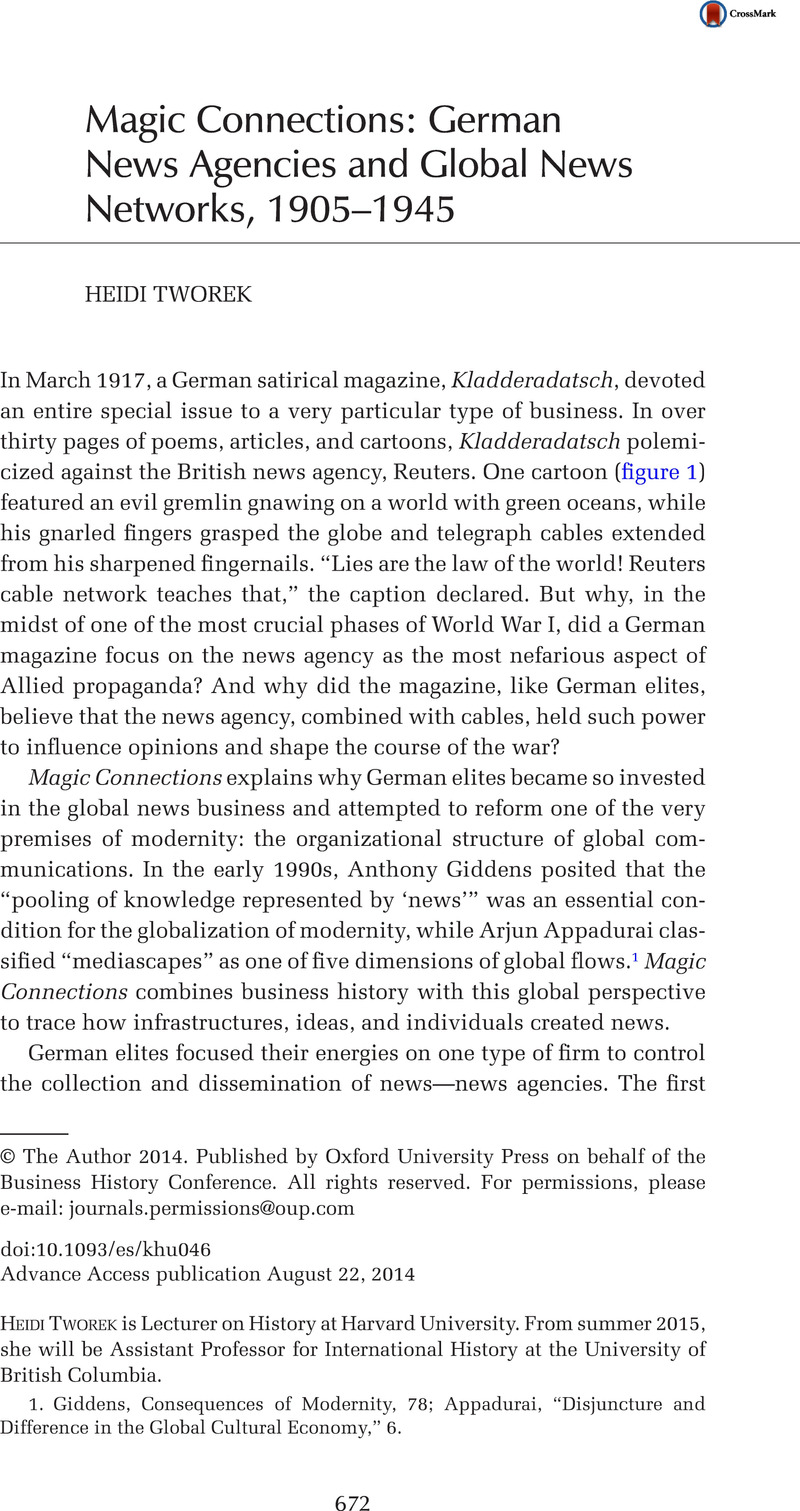Crossref Citations
This article has been cited by the following publications. This list is generated based on data provided by Crossref.
Birkwood, Katherine
and
Howard, Eric
2015.
Bibliography.
Library & Information History,
Vol. 31,
Issue. 3,
p.
218.
Tworek, Heidi J. S.
and
Müller, Simone M.
2015.
Editorial – communicating global capitalism.
Journal of Global History,
Vol. 10,
Issue. 2,
p.
203.
Müller, Simone M.
and
Tworek, Heidi J.S.
2015.
‘The telegraph and the bank’: on the interdependence of global communications and capitalism, 1866–1914.
Journal of Global History,
Vol. 10,
Issue. 2,
p.
259.
Müller, Simone M.
and
Tworek, Heidi J. S.
2016.
Imagined use as a category of analysis: new approaches to the history of technology.
History and Technology,
Vol. 32,
Issue. 2,
p.
105.
Akami, Tomoko
2018.
The Encyclopedia of Diplomacy.
p.
1.
Surm, Jasmin
2020.
AFP, EFE and dpa as international news agencies.
Journalism,
Vol. 21,
Issue. 12,
p.
1859.
Pitteloud, Sabine
Ballor, Grace
Clavin, Patricia
Perrone, Nicolas Marcelo
Rollings, Neil
and
Slobodian, Quinn
2022.
Capitalism and Global Governance in Business History: A Roundtable Discussion.
SSRN Electronic Journal ,
Kuorelahti, Elina
and
Jensen-Eriksen, Niklas
2023.
Free Press, Regulated Competition.
Media History,
Vol. 29,
Issue. 4,
p.
497.
Kuitenbrouwer, Vincent
2024.
Global History of Techniques.
Vol. 9,
Issue. ,
p.
415.
Lakomaa, Erik
and
Wahlund, Richard
2024.
The Internationalization of the Newspaper Industry 1989–2002: Three Scandinavian Cases.
Enterprise & Society,
Vol. 25,
Issue. 2,
p.
592.



